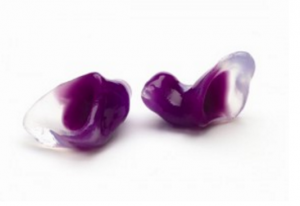2017 is not just another year, it’s the year of Hearing Loss Prevention.
Make the most of your hearing health in 2017
New hearing technologies and increased awareness of hearing loss points to 2017 as being the “Year of the Ear.” If you haven’t already made your New Year’s resolutions, consider what you can do to protect your hearing and be more hearing health conscious. We’ve compiled a list of a few things that you might want to consider for the new year.

Hearing Health & Loss Prevention
Hearing loss prevention is an action where you take special precautions to ensure your hearing is not being negatively affected. Sometimes the loss itself can be difficult to identify, which is why it’s so important to be on top of changes that may occur to your hearing.
Your hearing health has a direct effect on your overall health. Hearing loss has been linked to numerous medical issues, including viruses, bacteria, heart conditions or strokes, head injuries, tumors and certain medicines.
- Heart health: Studies show that a healthy cardiovascular system – a person’s heart, arteries and veins – has a positive effect on hearing. Inadequate blood flow and trauma to the blood vessels of the inner ear can contribute to hearing loss.
- Hypertension: There is a significant association between high blood pressure and untreated hearing loss. Hypertension can be an accelerating factor of hearing loss in older adults.
- Smoking: Current smokers have a 70 percent higher risk of having hearing loss than non-smokers.
- Obesity: Higher body mass index (BMI) and larger waist circumference are associated with increased risk of hearing loss in women.
- Diabetes: Hearing loss is twice as common in people with diabetes compared to those without. Adults whose blood glucose is higher than normal but not high enough for a diabetes diagnosis, have a 30 percent higher rate of hearing loss compared to those with normal blood sugar.
- Ototoxicity: There are more than 200 medications (prescription and over-the-counter) on the market today that are known to be ototoxic or “poisonous to the ears.” Some known ototoxic drugs are: Aspirin, Quinine, Loop diuretics (or “water pills”), certain antibiotics, and some environmental chemicals.
Make sure you are making an annual hearing test part of your hearing health routine. Many hearing clinics provide free testing. If you haven’t already, schedule your next evaluation for the new year today.
Protect Your Ears
 Noise-induced hearing loss (NIHL) is increasingly becoming a problem, especially for people aged 12 to 35. With the growing popularity of personal listening devices, taking steps to protect your hearing has never been more important. Take steps to ensure that you are listening at an appropriate volume, and use earplugs in heavily noise-polluted environments such as sports venues, hunting, shooting, concerts, or other events and activities that are loud. As little as 10 seconds at a loud stadium or concert can cause permanent hearing damage. Learn More about Hearing Protection.
Noise-induced hearing loss (NIHL) is increasingly becoming a problem, especially for people aged 12 to 35. With the growing popularity of personal listening devices, taking steps to protect your hearing has never been more important. Take steps to ensure that you are listening at an appropriate volume, and use earplugs in heavily noise-polluted environments such as sports venues, hunting, shooting, concerts, or other events and activities that are loud. As little as 10 seconds at a loud stadium or concert can cause permanent hearing damage. Learn More about Hearing Protection.
Take Steps to Treat Hearing Loss
A shockingly large number of people that could benefit from using hearing device don’t use one. Hearing aid technology has improved significantly in recent years, and it’s worth exploring what kind of solutions there are that could make your life easier. You might be surprised by what a hearing aid device can do to improve your quality of life. If you’re suffering from hearing loss and haven’t considered treating it, now is the time!
Don’t Be Afraid to Ask for Help
Every person’s hearing is unique, almost like a fingerprint. When it comes to issues like hearing loss, tinnitus, hearing technology etc. don’t be afraid to ask a professional for advice. Your audiologist can help you make informed decisions about your hearing health and start on a path toward better living.
With the New Year here and moving with a vengeance, it is important to be proactive especially where your health is concerned. Whether it is your hearing, or a colleagues hearing, please educate and pass this message on.
Let’s prevent Hearing Loss, one ear at a time.